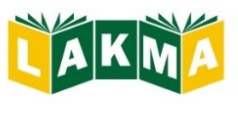
BIODATA
Vilma BIJEIKIENĖ is an Associate Professor and Deputy Director at the Institute of Foreign Languages, Vytautas Magnus University, Kaunas, Lithuania, where she teaches English for Politics and Diplomacy, Legal English and Sociolinguistics. She is also an Executive Editor of the international biannual scientific journal Darnioji Daugiakalbystė// Sustainable Multilingualism (http://uki.vdu.lt/sm, Open Journal Systems, indexed in CEEOL). She has participated in various international projects related to multilingualism and multiculturalism in higher education and innovations in language learning and teaching. She received PhD at the University of Bergen, Norway, delivered lectures as an Erasmus teacher at Johannes Gutenberg University, Mainz, Germany, and University of the Basque Country, Bilbao, Spain. Main areas of her research and publications include sociolinguistics, discourse analysis, political linguistics, pragmatics, EFL and ESP didactics, multilingual and multicultural learning spaces in higher education, EMI and CLIL.
PLENARY (joint presentation with Vilma Bačkiūtė and Vilma Bijeikienė)
The Interface Between Competence-based Education and CLIL
A priority area within the Education & Training 2020 agenda (EU) is to promote learning mobility for all learners at all levels of education and training. Language skills are important prerequisites for increasing employability and competitiveness. There is an obvious need for innovative methods for developing transversal skills, including language, for better career opportunities. Content and Language Integrated Learning might be the key. CLIL’s most iconic phrase, ‘Using languages to learn and learning to use languages’ is relevant to increased opportunities for employment.
Improving the outcomes of education and training by investing in competence-based approaches and promoting language skills in particular can only happen if we provide an appropriate educational environment.
In Lithuania, CLIL was considered as a methodology through several projects implemented at the national level since 2003. This talk attempts to reflect on the Lithuanian context and practice that benefited from the projects (2003 – 2013) and in the light of changing demands and expectations for education, including policy dialogue at the interface between competence-based education and CLIL.
